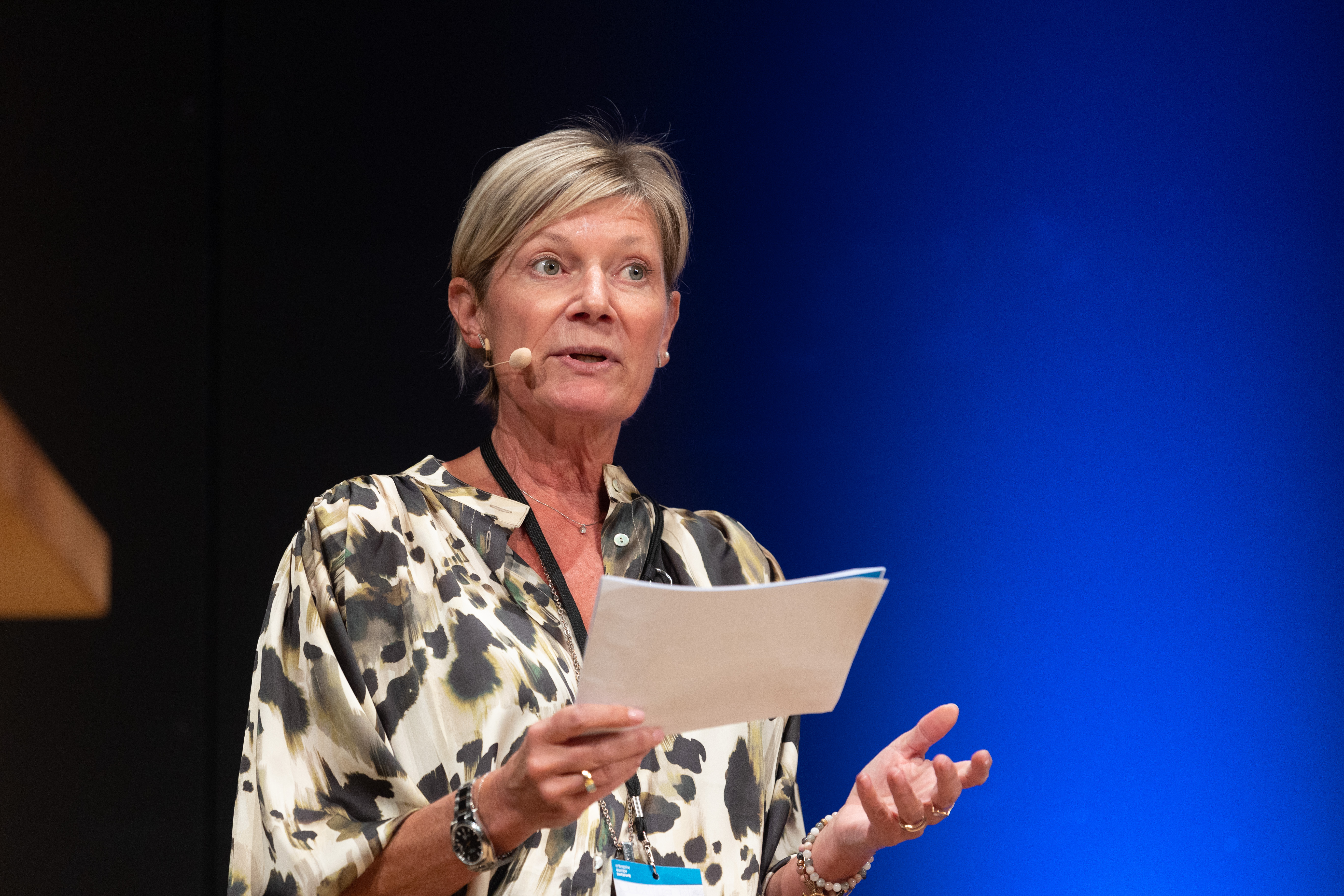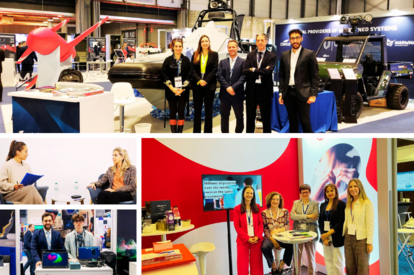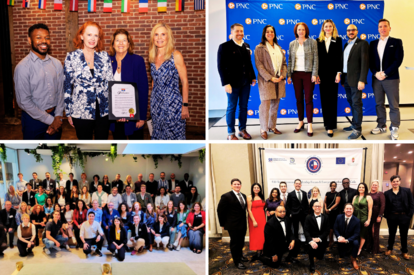
As the Enterprise Europe Network enters a new framework period, we talked to Muriel de Grande, Head of Sector at the European Innovation Council and SMEs Executive Agency (EISMEA), to find out more about the Network’s exciting initiatives and plans for the future.
When was the new Network launched?
On 22 February 2022, the renewed Enterprise Europe Network was officially launched during a half-day virtual event. This was the occasion to present the new horizons for the Network and the novelties in this new framework period. Most notably, speakers explained the Network’s role in the Commission’s industrial and small and medium-sized enterprises (SMEs) policy strategies, introduced the different types of advisers present in the Network, and clarified the new mandates of the Network’s groups of experts reflecting the 14 ecosystems of the European Industrial strategy.
What are the new priorities of the Network?
The new priorities of the Network are sustainability, digitalisation, and resilience. In view of recent events, dealing with value and supply-chain disruptions has also come up as a major priority. But in spite of these new orientations, the Network’s core business remains to provide SMEs with top quality services in the area of business partnering, innovation, internationalisation, and access to finance.
What changed and how is the new Network better equipped to support SMEs?
The Enterprise Europe Network builds on a long tradition: three decades of support for SMEs, always evolving with the needs of European companies. The Network is therefore uniquely equipped to support companies face the challenges of the triple transition. For example, the appointment of specific sustainability advisers in every consortium makes sure that companies across the EU can receive crucial advice on how to transition to more sustainable business models.
At the same time, we have new communities of practice in horizontal thematic groups that reflect the Network’s new priorities and competence, as well as expertise centres in the new sectorial groups that closely monitor the Commission’s industrial ecosystems.
This arrangement will also help the Network sharpen its role and visibility as a recognised actor across different industry sectors. Finally – and most importantly – the Network’s best equipment are its people: experts who are in regular touch with each other, share knowledge and expertise, and are ready to join forces to help SMEs.
How is your team supporting Network partners?
We provide the infrastructure that makes sure the Network runs smoothly – from the sometimes onerous, but nevertheless important management of grant agreements to ensuring animation, organising training and learning activities, communication activities and developing IT tools. And we link companies up with the right initiatives, programmes, and Commission departments to ensure we get the best synergies to work in the Network’s advantage. We are, in short, the central office of the Network.
Which are the main challenges and opportunities for Network partners?
It’s always a big job to set up a new project, manage novel consortia with new partners, and reorient existing activities without losing track of one’s strengths. Yet, the real challenge for the Network is to become sufficiently flexible and responsive to react in a decisive way to the rapidly changing needs of SMEs. Lately, successive external economic shocks have had a profound impact on SMEs that required the Network to react quickly to address unexpected problems, such as supply chain disruptions and major market disturbances that challenged existing business models. These needs occurred – and will probably occur again – in parallel with the already challenging new mission of the Network to contribute to making the EU’s economy more sustainable, more digital, and more resilient. All of these aspects evidently hold major opportunities, not only for the Network but also for its clients. Nonetheless, turning challenges into opportunities requires a lot of agility, great awareness, and excellent professional skills.
Furthermore, it is important that the Network becomes more visible as a powerful actor in the SME policy-making and industrial ecosystems. The Network has extensive expertise in what really matters to SMEs and is able to make this knowledge available quickly and efficiently to inform policy decisions and help the Commission gauge the temperature among the SME community in almost all industrial ecosystems. Harnessing its potential will require structured communication as well as feedback channels, which we will have to learn to use effectively. But this can help turn the Network into an even more strategically important infrastructure in the EU’s approach to SMEs.
What Network achievements are you most proud of?
Here, we could look at particularly catchy success stories, from offshore tidal power generation projects to internationalising the market for Irish oysters, or at the impressive figures showing the many thousands of SMEs we have supported. But to be frank, what we can really be proud of is the Network’s people and the way everyone buys into it, commits to our common values, and makes sure that we have become a real network of excellent colleagues. It’s the network factor that really makes the Network successful!
Which aspect of your work are you most passionate about?
I am passionate about our work at Enterprise Europe Network because we all share the same objectives: supporting SMEs in Europe in a challenging commercial, innovative, and green business world. I also enjoy working closely together with Network colleagues, which has allowed us to build strong and inspiring relations and learn from each other.
What are some of the most important lessons you learned during this transition? What are the Network’s plans for the future?
I learned that IT tools always take longer to develop than we think; but we’ll get there in the end.
On a serious note, I think the Network has a challenging yet interesting time ahead where it have to react and adapt quickly to changing circumstances. Just look at the sudden disruptions to supply and value chains caused by external shocks such as the COVID-19 pandemic or the Ukrainian crisis. As companies saw their markets or the source of badly needed raw material disappear from one day to the next, the Network reacted immediately by creating matchmaking platforms to help SMEs find new markets, partners, and resources or even by advising them to innovate and pivot their business. The Network will continue to be expected to be flexible and responsive to newly emerging situations. It will also increasingly become an additional pair of eyes and ears on the ground for the Commission: the Network is so close to companies that it is able to rapidly detect changing needs in the SME community and inform the Commission accordingly. This will give the Network a distinct and stronger voice in informing policy-making at the European level.
In terms of more conceptual considerations, we’ll be looking at implementing sustainability support, beefing up resilience among European SMEs, and helping companies embrace, rather than fear, digitalisation. If we approach it the right way, we’ll be able to make a real difference. Experience shows that the Network can achieve a lot – if we organise and structure things well, while allowing enough room for innovation. We look forward to making this journey together with you!
Muriel De Grande is Head of Sector at the European Innovation Council and SMEs Executive Agency (EISMEA) of the sector managing the Enterprise Europe Network and its partnerships. Over the past 22 years, she has worked for the EU institutions as Financial and Budget Officer and as Manager in operational sectors supporting EU SMEs. She holds a Master’s Degree in Finance and Trade from ICHEC. Muriel is Belgian and speaks four languages: English, French, Spanish and Dutch.
Related articles

In a world of saturated markets and shrinking attention spans, innovative SMEs must go beyond great products: they need smart, strategic communication to succeed globally. Discover five powerful tips...

Starting a business on a tight budget? You don’t need a huge marketing budget to see real results. In this article, we’ll share 4 affordable marketing strategies for small businesses, showing you how...

Resilience is key to overcoming setbacks, uncertainty, and the daily challenges of running a business. In this blog, communication expert Emma Ewing and well-being coach Tammy Barter break down what...

Is Texas your next big opportunity? You’re probably thinking of sizzling fajitas, rugged cowboys, or the sweet sound of Willie Nelson strumming his guitar. Well, Texas has all of that, but it’s also...
